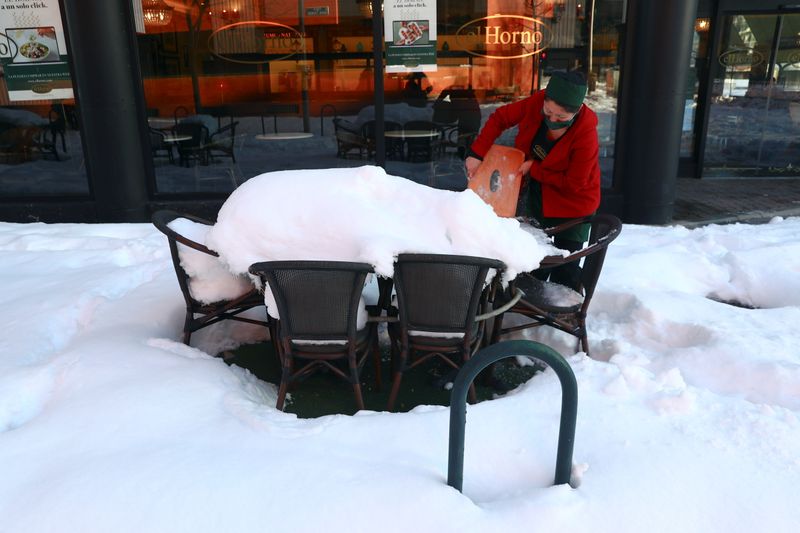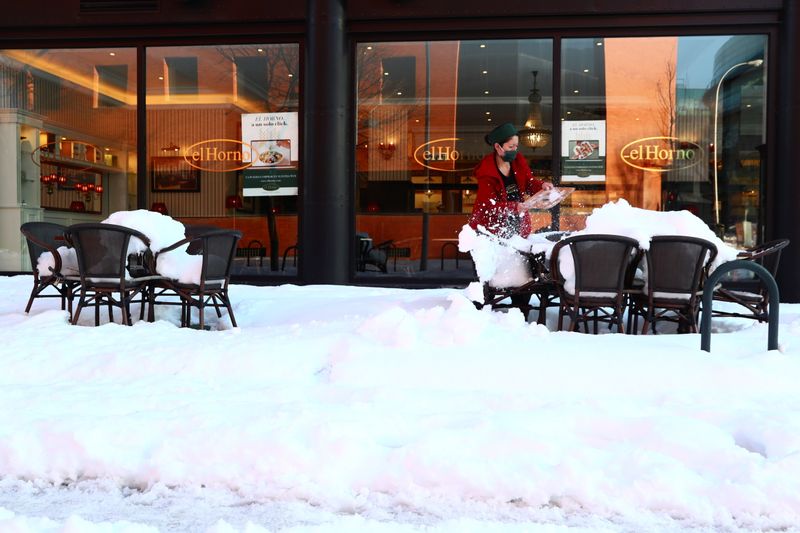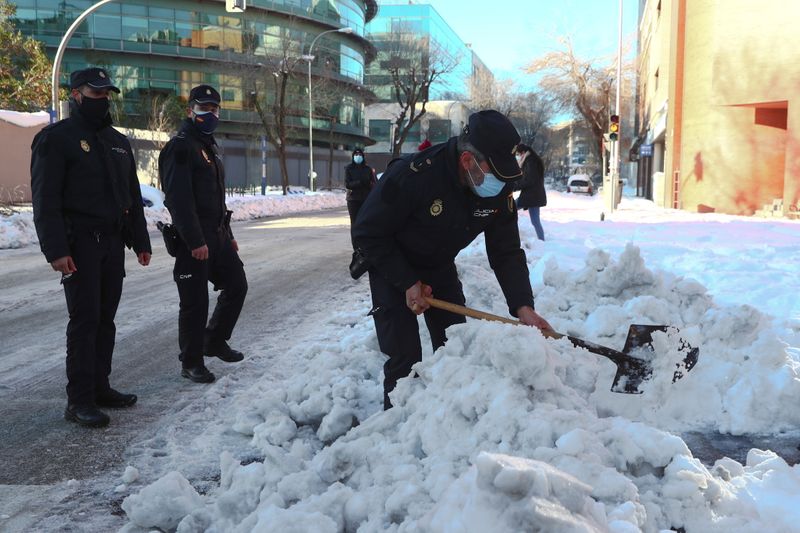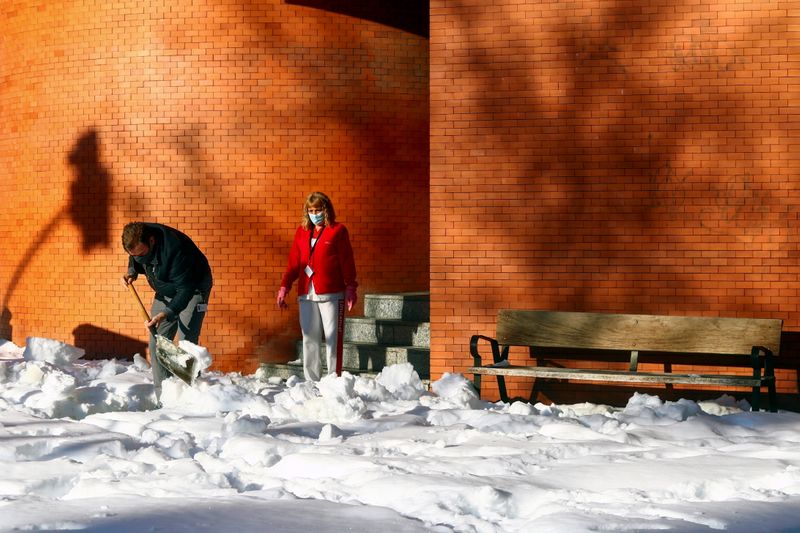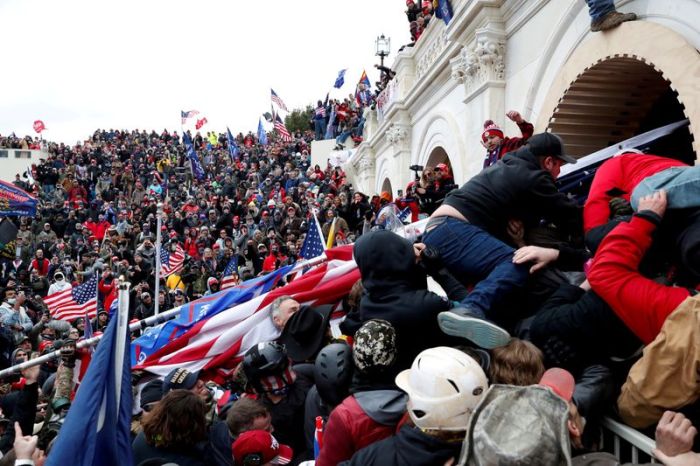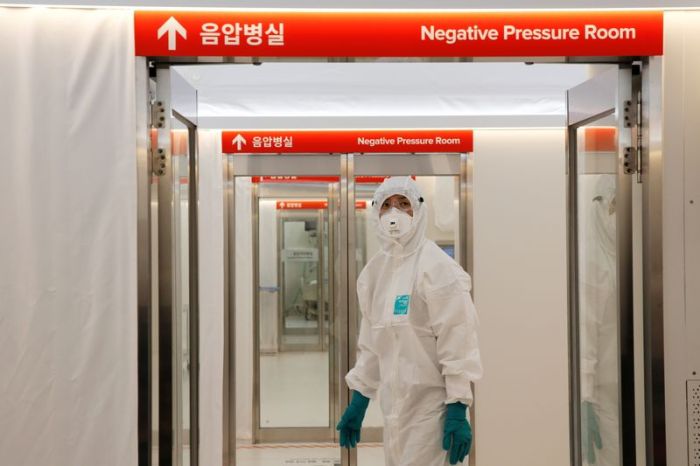MADRID (Reuters) – Schools in Madrid were shut and some supermarkets ran out of fresh produce or were shuttered on Monday but most trains and flights had resumed operations after a huge snow storm hit the Spanish capital and several other regions over the weekend.
While many people enjoyed the rare snowfall, skiing in the very centre of Madrid and holding mass snowball fights, a further cold spell was set to turn the snow into ice this week and authorities rushed to clear more streets, though they said the efforts could take one or two weeks.
Residents of Madrid, which has seen its heaviest snowfall in at least 50 years, helped police open paths through deep banks of snow using plywood boards or trays, and poured salt on the underlying ice. With rooftops enveloped in snow, authorities cordoned off some pavements due to the risk of accidents.
The storm, which dumped up to 50 cm (20 inches) on Madrid, has hampered Spain’s efforts to increase the pace of its coronavirus vaccination programme amid rising infections.
A new batch of vaccines meant to land in Madrid was diverted on Monday to Vitoria in the north, but city authorities said vaccinations in care homes and hospitals continued as planned.
Renfe train operator said all fast train lines were operating except for Madrid-Barcelona connections, which are likely to resume early in the afternoon. Most Madrid suburban lines were working on Monday, but with fewer trains than usual.
“COMPLICATED SITUATION”
Two runways at the Barajas international airport re-opened. The airport operator said that of around 400 flights scheduled to fly in and out on Monday, 117 had been cancelled.
A Reuters reporter saw a number of empty shelves at several central Madrid supermarkets.
The Spanish supermarket association urged customers to behave responsibly in the wake of a “complicated situation” in many storm-affected areas. But it said supplies had resumed in the early hours on Monday and were gradually increasing.
After staying closed in the morning, Mercamadrid, the city’s main wholesale food market, said convoys of trucks which had been stranded in the snow since Friday had started arriving and that it was preparing to resume activity from Monday night.
About 85% of Madrid’s bars and restaurants are still closed, with a return to normal expected on Thursday, the Hosteleria de España association said, estimating lost revenues over the period at 70 million euros ($85 million)
Interior Minister Fernando Grande-Marlaska said the situation on the roads was improving but was still “extraordinary” and many remained closed.
The cold wave, with temperatures as low as -10 degrees Celsius in central Spain, will last until Thursday, the Aemet meteorological agency said.
($1 = 0.8223 euros)
(Reporting by Guillermo Martinez, Elena Rodriguez, Ingrid Melander, Cristina Sanchez, Belen Carreno, Inti Landauro, Clara-Laeila Laudette, Emma Pinedo, Andrei Khalip; Writing by Ingrid Melander and Andrei Khalip; Editing by Raissa Kasolowsky and Gareth Jones)

